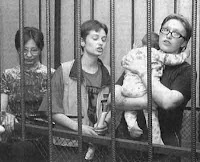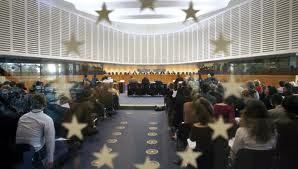Today the ECHR delivered its judgment in the case of Naboyshchikov v. Russia related to the excessive use of force against a mentally ill man resulting in his partial disability and considerable psychological distress and to the lack of effective investigation into this matter by Russian authorities. The Court unanimously found Russia responsible for a violation of Article 3 of the Convention (prohibition of torture and inhuman or degrading treatment) and ordered Russia to pay the applicant 23,000 euros (EUR) in respect of non-pecuniary damage.
Facts of the case
The applicant suffered from a manic mental disorder. Allegedly on 2 October 2003 he saw a road police inspector being bribed for permitting the number of cars to enter a restricted-access zone. He also believed that the railway guards were aiding terrorists. On the same day he demanded the guards stop letting the cars through. However, no action followed after that. In this connection the applicant decided to investigate himself why certain cars were allowed to pass through the restricted zone.
At 2 a.m. on 3 October 2003 the applicant accessed the restricted territory of the guarded zone. He admitted that he might have tried to set fire to the car of one of the guards, who later apprehended the applicant. After that, the applicant was searched and taken to the guardroom, where he was allegedly brutally beaten. One of the guards also fired several shots hitting a fire extinguisher which discharged its foam. After the foam had settled down that guard returned to the guardroom and severely wounded the applicant by firing two rifle shots at his legs, as a result of which one of the applicant’s legs was amputated.
According to the Government’s submissions, the guard fired the shots at Mr. Naboyshchikov’s legs in self-defense since the latter threatened him with a knife after he re-entered the building. Meanwhile, the applicant alleged that the guard had planted a knife in the guards’ quarters to support his argument that the applicant had attacked him.
A few days later, a criminal investigation was opened on account of the serious bodily harm suffered by the applicant. However, after a year and several months criminal proceedings were eventually terminated for lack of corpus delicti.
The applicant complained under Article 3 of the Convention that he had been tortured by the railway guards and that the domestic authorities had failed to carry out an effective investigation into this matter.






